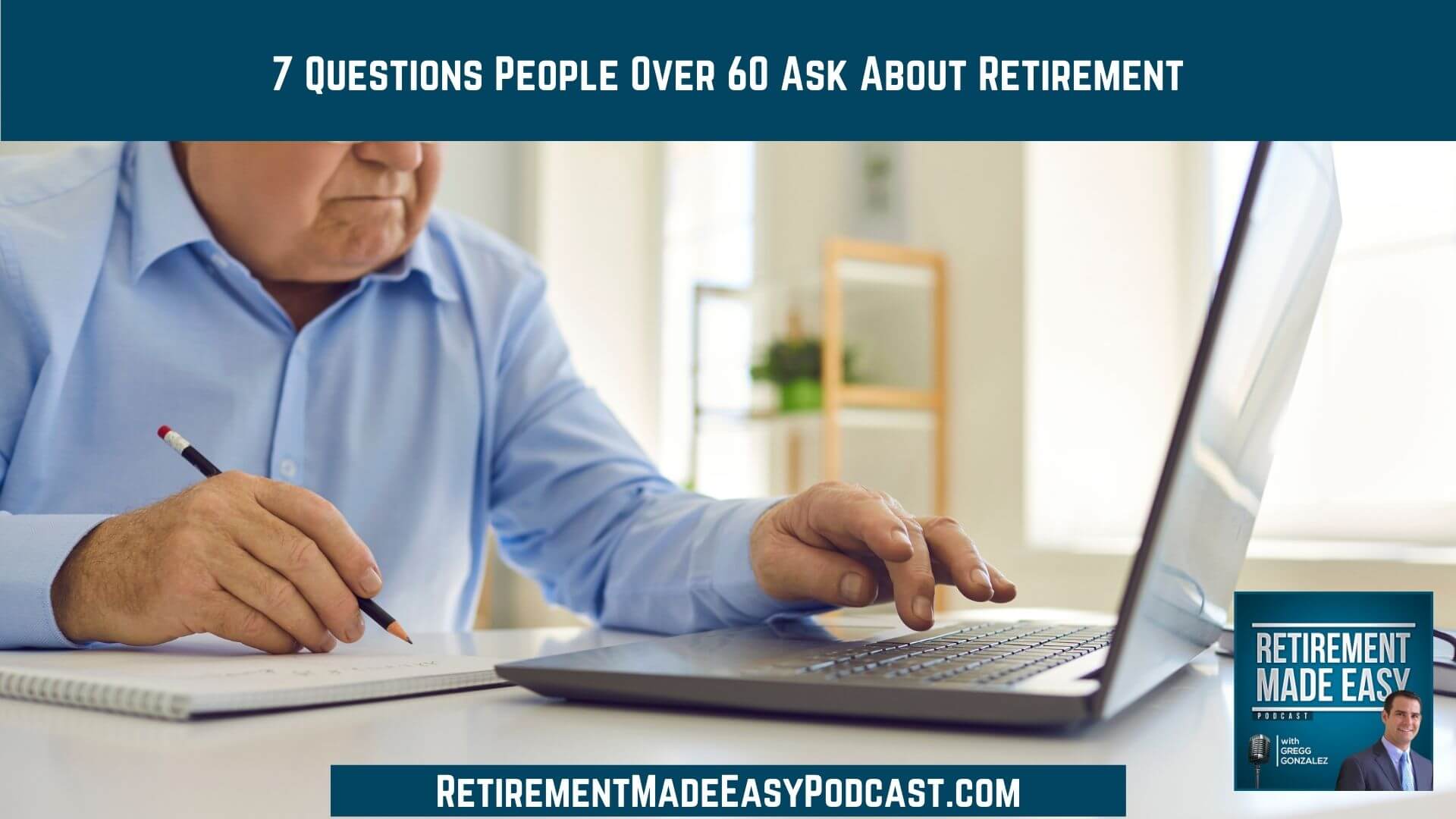
This episode is based on a book by Dr. Frank Luntz, “What Americans Really Want…Really: The Truth About Our Hopes, Dreams, and Fears.” Dr. Luntz has led focus groups and conducted numerous surveys on Americans to gather research about what Americans want. So in this episode of Retirement Made Easy, I cover the 7 most common worries of retirees as well as answer some listener questions!
You will want to hear this episode if you are interested in…
- [4:49] 7 Questions people over 60 have about retirement
- [11:58] Listener Question #1: Why I think life insurance is NOT an investment
- [15:36] Listener Question #2: Why some financial advisors only deal with investments
- [17:05] Listener Question #3: A guaranteed 10% return and money back
- [18:05] Listener Question #4: How to invest an inherited IRA
7 Questions people over 60 have about retirement
- Will I run out of money before I run out of years? I hear this question over and over again. The thought of living purely on social security is terrifying. What if they have to go back to work?
- Is social security going to be there for me? Everyone is worried social security will run out before it’s their turn to collect.
- Will I be able to afford healthcare when I get too old to work? Healthcare expenses continue to rise—how can a retiree continue to afford trips to a doctor?
- Am I one medical emergency away from bankruptcy and ruin?
- Are prescription drugs going to be so expensive that you’ll have to choose between them and food?
- Will I be a physical or financial burden on my spouse or children? No one wants to be a burden to their loved ones.
- Will I lose my independence and mobility at some point? Anyone over 60 wants to maintain their dignity in retirement. The thought of depending on someone else is frightening.
I was reading a book by retired financial planner Nick Murray, “Simple Wealth, Inevitable Wealth” where he encouraged an experiment. As you’re nearing retirement, find an 80+ year old that you trust and ask them a hypothetical question.
Let’s say you have two choices:
- Option #1: You can vanish from the earth at the end of the day. No questions asked.
- Option #2: You have to put your hat on, walk to the bus stop, take the bus to your children, and ask them for the money you need to live on for the next month.
Most—if not all—80–90-year-olds would rather be gone from the earth than have to rely on their kids for financial support. They don’t want to be a burden. Dr. Frank Luntz’s surveys have come to the same conclusion.
As a financial planner, what do I tell someone who lives until 98 and we had only planned until age 92? We make sure there’s a cushion that can take them through their 90s and 100s.
Why I think life insurance is NOT an investment
There are investments you can put inside a retirement account. You can own stocks, bonds, mutual funds, ETFs, etc. in a 401k or IRA. Guess what you can’t have in an IRA? Life insurance. The vast majority of people have their nest egg in IRAs, Roth IRAs, 401Ks, and 403Bs. It’s money you’re investing for the future to draw an income from. You’re prevented by law from placing life insurance in these accounts. Because of this, you can’t classify them as an investment. Sure, it can be a way to leave a legacy, fund a trust, etc. but that’s a separate argument.
Keep listening to hear me answer some questions about financial advisors and some sketchy investment schemes!
How to invest an inherited IRA
If you inherit a $500,000 IRA, what is the best way to invest it? This is a broad question. If you inherit money after January 1st, 2020, you have to take distributions from the IRA. You will pay Federal and State income taxes on those withdrawals over 10 years. It would then be depleted. But you want growth, right? So here are some things to think about:
What will the tax burden be? If you are retiring in 5 years, it might make sense to wait five years to take withdrawals. You can defer the tax burden to years 6–10 when you don’t also have earned income.
What do you want to accomplish with the money? Does your risk score match your desired outcome? If you want to use the withdrawals to pay off your house, you must plan your investments so each withdrawal can pay off your home before you retire.
I might take distributions to increase my retirement savings in my retirement plan. I’d get a tax deduction to offset the taxes I’m charged from the withdrawal. You could max out your 401k at work and it would be a wash.
Resources & People Mentioned
- BOOK: What Americans Really Want…Really: The Truth About Our Hopes, Dreams, and Fears by Dr. Frank Luntz
- Learn more about Dr. Frank Lutz
- BOOK: Simple Wealth, Inevitable Wealth by Nick Murray
Connect With Gregg Gonzalez
- Email at: Gregg@RetireSTL.com
- Podcast: https://RetirementMadeEasyPodcast.com
- Website: https://StLouisFinancialAdvisor.com
- Follow Gregg on LinkedIn
- Follow Gregg on Facebook
- Follow Gregg on YouTube



